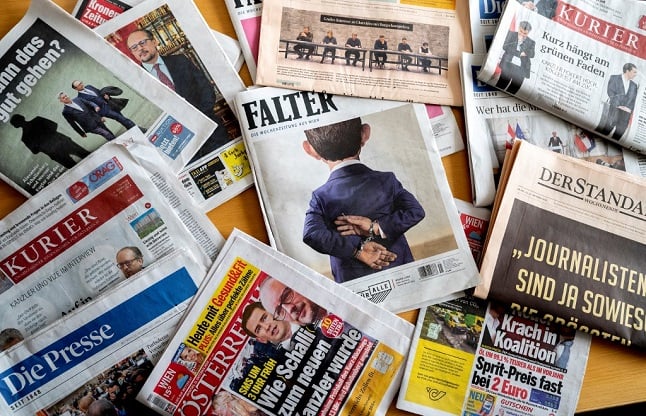The western Austrian state of Tyrol is a stronghold for the centre-right party ÖVP, which also leads the governing coalition in the federal government. On Sunday, Austrian citizens went to the polls for the state parliament elections, forming new legislation – and putting their support on their favourite candidates.
Even though the ÖVP got most of the votes, it is far from getting a majority and will need to enter into a coalition to rule. The party got 34.71 percent of the votes, down by 9.55 percentage points from the previous elections and a significant setback for the blacks. However, this gives them 14 seats in parliament.
READ ALSO: EXPLAINED: How do Austrians elect their chancellor?
The centre-left SPÖ ended with 17.48 percent of the votes – just 0.23 percentage points higher than the last vote in 2018, getting seven seats. On the other hand, the far-right FPÖ got a major victory, upping their results by 3.31 percentage points and reaching 18.84 percent, guaranteeing seven seats in parliament.
The Grüne ended with 9.20 percent (three seats), Fritz with 9.90 percent (three seats), Neos with 6.28 percent (two seats), MFG with 2.78 percent, KPÖ with 0.67 percent and Mach mit with 0.13 percent.
How does the election process work?
Tyrol, much like the Austrian federal government, has a parliamentary system. This means voters will choose the parties they want to have seats in the state parliament. So, for example, ÖVP will get about a third of the seats in the house.
The parties need a minimum percentage of votes to get representation in the parliament. Even though MFG, KPÖ and Mach Mit got votes, they have failed to elect representatives and gain seats in the state parliament.
READ ALSO: Austrian presidential elections: What exactly does the president do?
After the parliament is elected, its members then choose a governor. In practice, since the parties already run with a suggested government candidate, people who vote for them also know which person they elect for the executive position.
In the case of ÖVP, Anton Mattle, the 59-year-old career politician, was the party’s choice for the top state job. Had the party won more than 50 percent of the votes, they would be able to elect Mattle, the new governor, without discussing it with other parties.
But, since it didn’t, the ÖVP now will start talks with other parties looking to form a majority government and elect Mattle – plus ensure that by having a clear majority in the state parliament, they will be able to pass legislation.
What coalitions are possible?
Technically, any coalitions between two or more parties that lead to a majority in the state legislature are possible, even those without ÖVP. However, since the centre-right party got the most votes, it traditionally receives the right to try and form a government first.
Experts believe the most likely scenario is for a major coalition between the blacks and the reds, meaning the ÖVP and the SPÖ. They would have to discuss their main government proposals, the distribution of executive positions and other points to see if an ÖVP-SPÖ government is possible.
READ ALSO: Austrian presidential elections: Why 1.4 million people can’t vote
An ÖVP-FPÖ coalition could also technically have a majority, but Mattle had already rejected the idea of an agreement with only the far-right.
Additionally, ÖVP could look into a three-way coalition, bringing, for example, the Grüne and Fritz to the government.
So who will be the next governor?
It is most likely that Anton Mattle, from the ÖVP, will get the job. The only question is who his party will be ruling with.
He told Austrian media that the exploratory talks for a coalition agreement would start in the coming days.
READ ALSO: Austrian presidential elections: Who are the seven candidates?


 Please whitelist us to continue reading.
Please whitelist us to continue reading.
Member comments